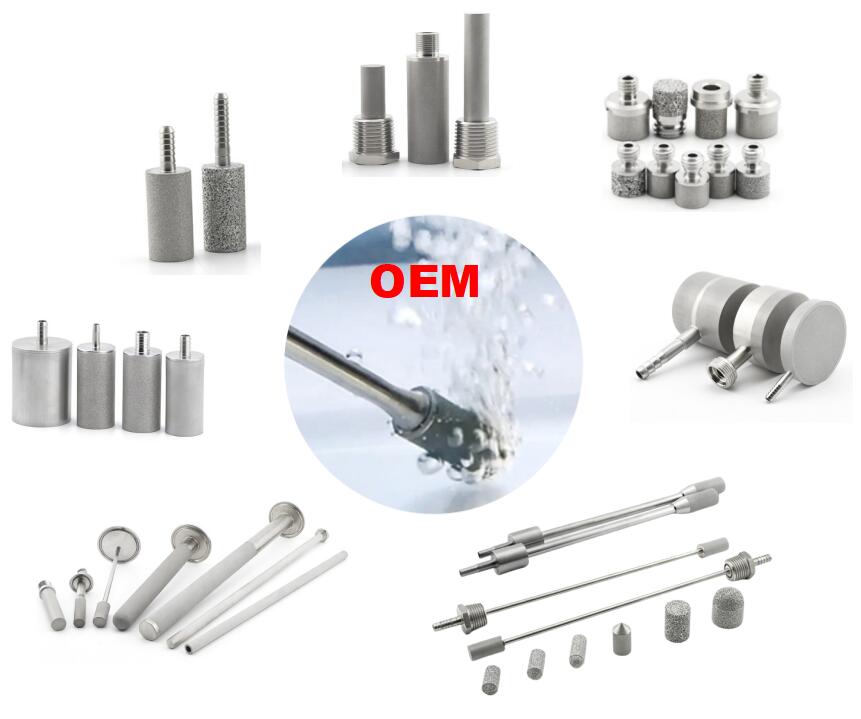-
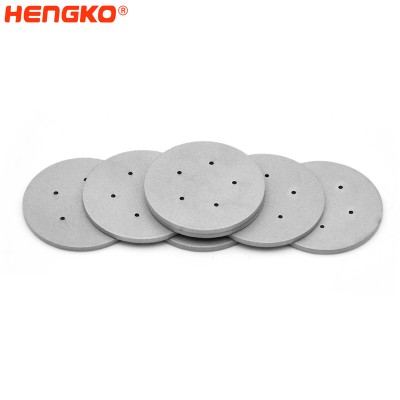
Single Use Bioreactor diffuser sparger for cell culture
In the initial stage of upstream processing in bioprocessing, fermentation is commonly used. Fermentation is defined as the chemical changes caused by microo...
View Detail -
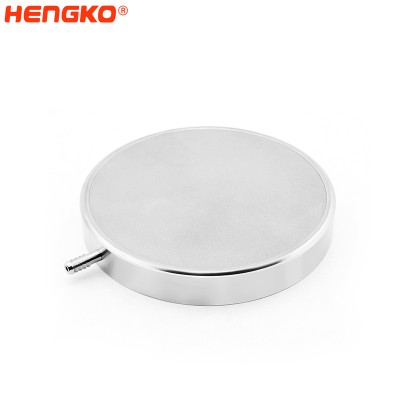
Sintered Metal Round Diffusion Stone for Bubble Spa Elite Footbath
Sintered Metal Round Diffusion Stone for Bubble Spa Elite Footbath HENGKO's focus is always on the health of the human body: this is why we have designed our...
View Detail -
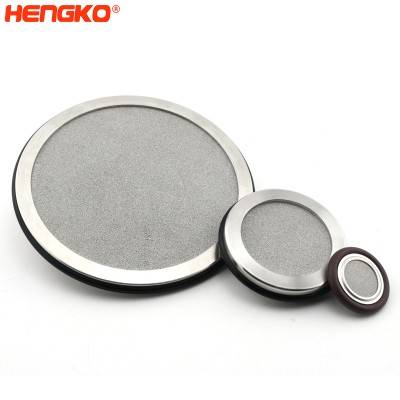
Porous sintered metal filter of ozone and air in water
The manufacturing process of large diameter (80-300 mm) discs of sintered stainless and corrosion-resistant steels is described. The characteristics of the i...
View Detail -
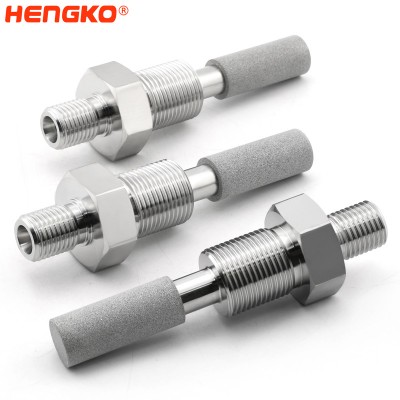
Hot Ozone Diffusion Stone in Laundry Industry Used for Sterilization
Ozone gas is dissolved into the water by utilizing pressure through hengko aeration difffusion stone . It does not take a lot of pressure to start dissolving...
View Detail -
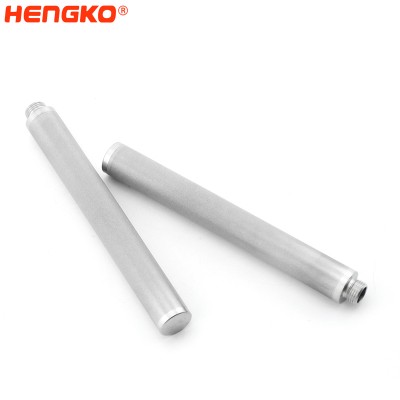
HENGKO OEM Sintered Steel Filter and Sparger
OEM Sintered stainless steel diffuser / sparger, for aerating in liquid. HENGKO’s sintered sparger are unsurpassed in strength, precision and uniformity. The...
View Detail -
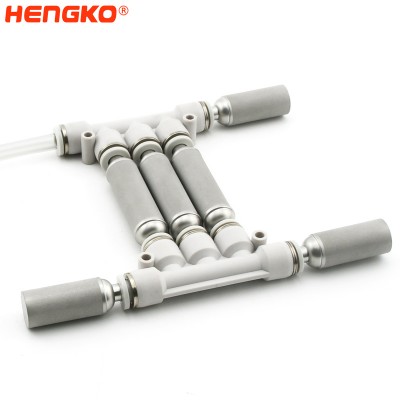
HENGKO micro porous filters to used to oxygenate water in shrimp farming – add en...
Causes of Low Oxygen in the Shrimp Farming Here is the list of the main causes of low oxygen in Shrimp Farming: Overstocking High Water Temperature Water Mo...
View Detail -
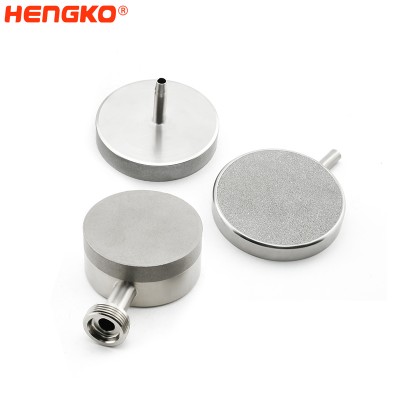
HENGKO High Purity Porous Metal Chamber Diffusers Stone for high purity gas filtration ...
HENGKO Porous Metal Diffusers quickly vent vacuum chambers to the atmosphere which decreases cycle time and increases throughput. Our stainless steel diffu...
View Detail -
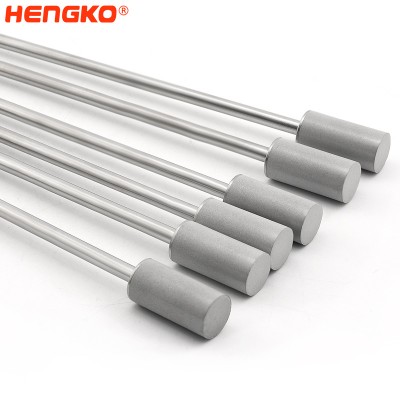
316 L Powder Stainless Steel Metal Frit Spargers Building A Stainless Steel Filtering S...
Product Description This device is particularly good for fermentations that require a large population of yeast. Pilsners (or other beers fermented at low te...
View Detail -
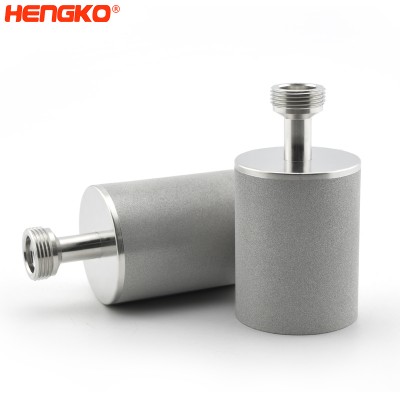
Sintered metal porous stainless steel micro inline oxygen air diffuser stone
Sintered air stone diffusers are often used for porous gas injecting. They have different pore sizes(0.5um to 100um) allowing small bubbles to flow through t...
View Detail -
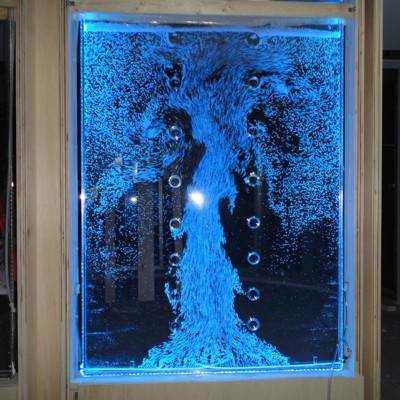
HENGKO micron small bubble air sparger oxygenation carbanation stone used in acrylic wa...
Product Describe HENGKO air sparger bubble stone is stainless steel 316/316L, food grade, with a beautiful appearance, suitable for hotels, fine dining and o...
View Detail -
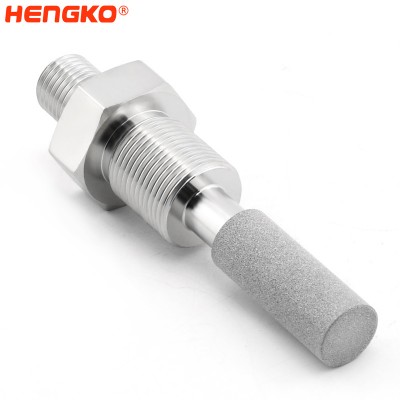
Sintered Stainless Steel 316L Carbonation Aeration Stone Used for Hydroponic Farming
HENGKO sintered spargers introduce gases into liquids through thousands of tiny pores, creating bubbles far smaller and more numerous than with drilled pipe ...
View Detail -
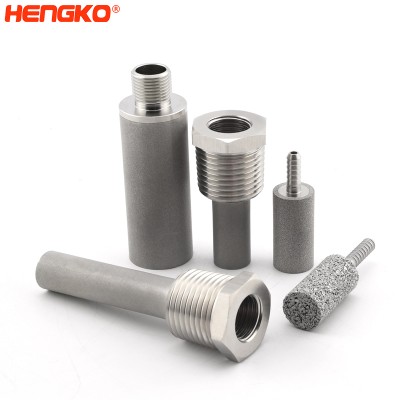
OEM high purity porous metal 316L chamber diffusers and filters
HENGKO OEM Gas Chamber Diffusers provide uniform and laminar gas flows without disturbing particles in the chamber. These diffusers also remove particles fro...
View Detail -
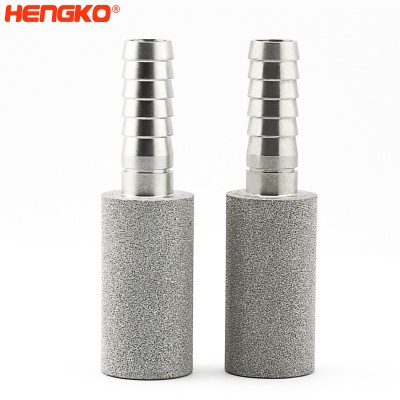
SFB01 air diffusion stone
HENGKO SFB01 air diffusion stone is fantastic to give nature a helping hand. Jump-start fermentation by getting much-needed oxygen into the wort and to your ...
View Detail -
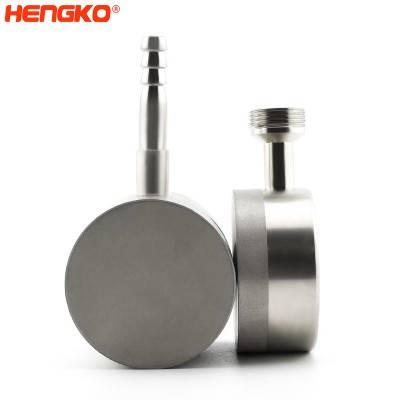
Stainless Steel 316 Carb Stone Brewing for Homebrew Carbonation – Yeast Oxygenation Kit
Sintered air stone diffusers are often used for porous gas injecting. They have different pore sizes(0.5um to 100um) allowing small bubbles to flow through i...
View Detail -
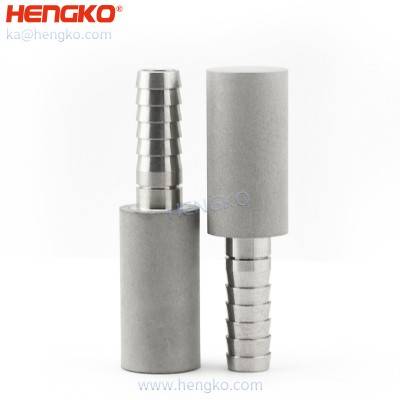
SFB02 Stainless Steel Micron Diffusion Stone
HENGKO SFB02 stainless steel diffusion stone is widely used to diffuse oxygen into your beer keg for fermentation. Made of high-quality 316L stainless steel,...
View Detail -

SFB03 SFB04 1/8” barb 316L carbonation diffusion stone – for Brewery & disti...
This homebrew oxygenation aeration stone can diffuse oxygen into your beer keg for fermentation. It is made of stainless steel and has a strong structure and...
View Detail -
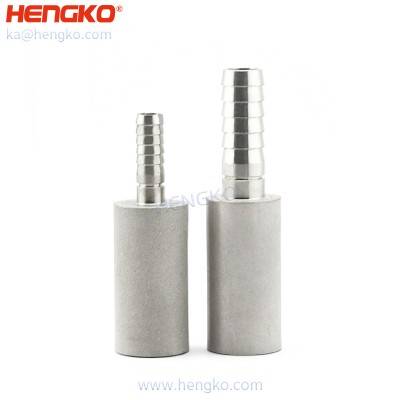
SFB03 Stainless Steel Aeration Stone
HENGKO Technology Co., Ltd is a high-tech manufacturer focused on R&D and manufacturing of stainless steel 316L carbonation stone, diffusion stone, oxyge...
View Detail -
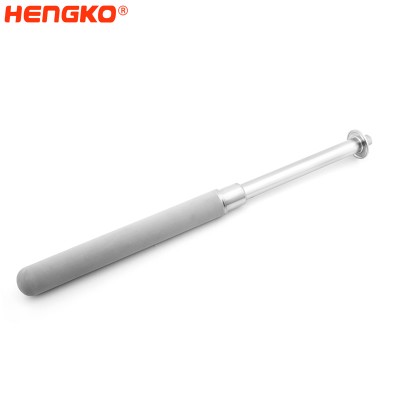
Oxygenation / Tri-Clamp Carbonation Stone Assembely
Carbonation stone is used in containers to inject and diffuser gases (such as carbon dioxide) into beer. It can be made of finely sintered stainless steel. U...
View Detail -
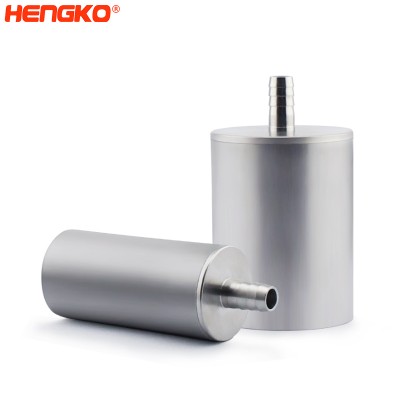
sintered sparger brewing carbonation wort aeration wands (Pure Oxygen) system for homeb...
HENGKO SS air stone is commonly used to aerate the wort before fermentation, which helps ensure a healthy start to the fermentation process. The HENGKO 2.0 m...
View Detail -
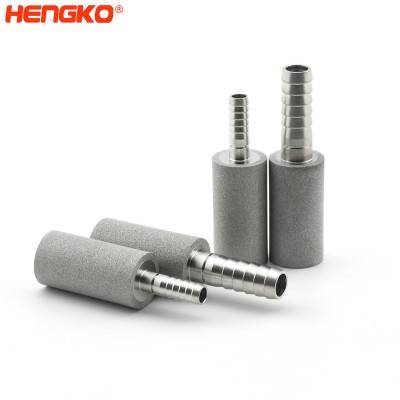
Diffusion Stone SFB04 Stainless Steel Aeration Stone- HENGKO
HENGKO diffusion stone for brewing made of high quanlity food grade 316L stainless steel that has the characteristics of practicality, health, corrosion resi...
View Detail
Main Feature of Sintered Metal Carbonation Stone
As You Know Metal diffusion stones are porous materials that are used to diffuse gases, such as
oxygen or hydrogen, into liquids, such as water or solvents. Here are eight features of metal
diffusion stones:
1. Porous structure: highly porous structure that allows gases to easily diffuse into liquids.
2. High surface area: high surface area, which increases their ability to diffuse gases into liquids.
3. Chemical stability: Chemically stable and can withstand high temperatures and pressures.
4. Easy to clean: Easy to clean and maintain.
5. Long lifespan: Long lifespan and can be used for many cycles before needing to be replaced.
6. Customization: Can be customized to meet specific needs, such as different pore sizes or shapes.
7. Versatility: Can be used in a variety of applications, including water treatment, chemical reactions,
and gas-liquid mass transfer.
8. Durability: Durable and can withstand harsh conditions, making them suitable for use in industrial settings.
Why Work with HENGKO
HENGKO is a leading provider of Diffusion Stone for a range of industries, including aquaculture, hydroponics, and water treatment. With over a decade of experience in the field, we have developed a reputation for producing top-quality Diffusion Stone that meets the needs of our customers.
Our team of skilled professionals is dedicated to providing the highest level of service to our clients. We use advanced equipment and techniques in our production process to ensure that our Diffusion Stone meets the highest standards of quality and performance. We are also committed to sustainability, using environmentally-friendly materials and processes in our production.
In addition to our focus on quality and sustainability, we also place a strong emphasis on customer satisfaction. We work closely with our clients to understand their needs and tailor our products to meet their specific requirements. We are always looking for ways to improve and innovate, and we are open to exploring new opportunities for collaboration.
Whether you are a business looking for a reliable supplier of Diffusion Stone or an individual seeking a partner for your project, we would be happy to discuss your needs and explore potential opportunities for working together. Contact us today to learn more about what we can offer.
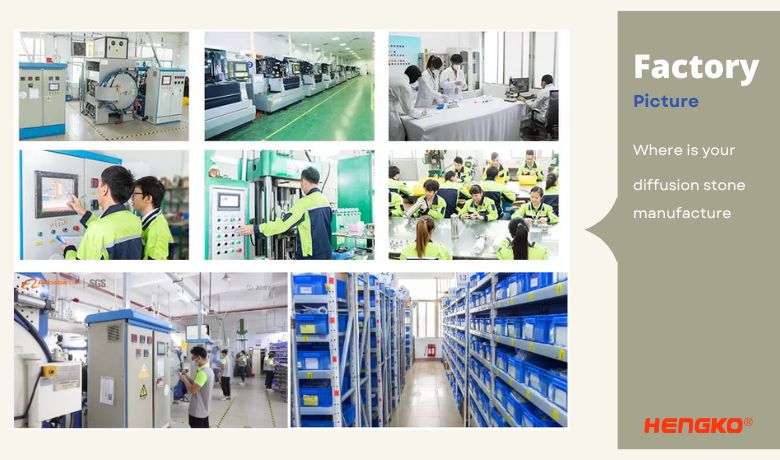
6 Tips You Should Confirm When Custom Your Own Diffusion Stone
Here are six tips to consider when customizing your own diffusion stone:
1. Determine the Gas and Liquid you will be using:
Different gases and liquids have different properties, so it's important to consider these when designing your diffusion stone. For example, if you are using a gas with a high solubility in the liquid, you may need a larger or more porous stone to achieve the desired level of diffusion.
2. Consider the Size and Shape of the Stone:
The size and shape of the stone will affect its performance and the rate of diffusion. A larger stone with a greater surface area may provide more efficient diffusion, but it may also be more difficult to clean and maintain.
3. Choose the Material for the Stone Carefully:
Different materials have different properties that can affect the performance of the stone. For example, stainless steel is durable and resistant to corrosion, but it may be more expensive than other materials. Plastic may be cheaper, but it may not be as durable or resistant to high temperatures.
4. Decide on the Pore Size:
The pore size of the stone will affect the size of the bubbles that are released, which can impact the rate of diffusion. Smaller pores may release smaller bubbles, which may be more efficient at diffusing the gas into the liquid, but they may also be more prone to clogging.
5. Think About the Flow Rate:
The flow rate of the liquid and gas through the stone will affect the rate of diffusion. A higher flow rate may provide more efficient diffusion, but it may also increase the risk of clogging or damage to the stone.
6. Consider the Cost and Maintenance:
Customizing your own diffusion stone can be a cost-effective solution, but it's important to consider the ongoing maintenance and replacement costs. Make sure to factor in the cost of materials, labor, and any additional equipment or supplies needed to create and maintain the stone.
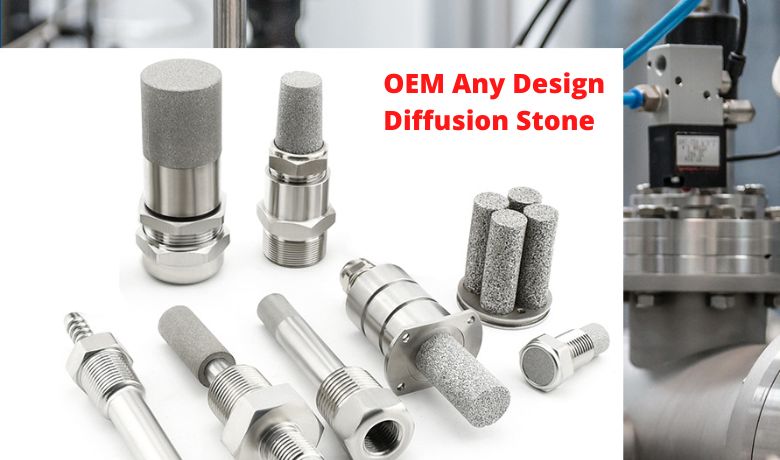
Frequently Asked Questions of Diffusion Stone
1. What is a diffusion stone and how does it work?
A diffusion stone is a small, porous device used to introduce gases into liquids. They are often used in brewing and fermentation processes to oxygenate wort or add carbon dioxide to beer. Diffusion stones work by releasing tiny bubbles of gas into the liquid, which then disperse throughout the liquid and dissolve into it. This allows the gas to be evenly distributed throughout the liquid, ensuring that all parts of the liquid are exposed to the gas.
2. How do I use a carbonation stone to carbonate my beer?
To use a carbonation stone to carbonate your beer, you will need a keg or other container to hold the beer, a CO2 tank and regulator, and a source of pressurized gas (usually CO2). First, make sure your keg and carbonation stone are clean and sanitized. Next, attach the CO2 tank and regulator to the keg, and set the pressure to the desired level (usually between 10-30 psi). Then, connect the carbonation stone to the gas inlet of the keg using a gas line. Turn on the CO2 and allow the gas to flow through the carbonation stone and into the beer. After a few days, the beer should be fully carbonated.
3. Can I use a carb stone to carbonate other types of beverages besides beer?
Yes, you can use a carb stone to carbonate other types of beverages besides beer. The process is generally the same as carbonating beer, but you may need to adjust the pressure and carbonation time based on the specific beverage and desired level of carbonation.
4. What is the difference between a SS Brewtech carb stone and other carbonation stones on the market?
SS Brewtech is a well-known manufacturer of brewing equipment, including carbonation stones. SS Brewtech carb stones are made from high-quality stainless steel, which is durable and resistant to corrosion. They may also be designed with specific features, such as a fine mesh filter, that are intended to improve the performance of the stone. Other carbonation stones on the market may be made from different materials, such as plastic, and may not have the same level of durability or performance as SS Brewtech carb stones.
5. How do I properly clean and sanitize my carbonation stone?
To clean and sanitize your carbonation stone, first remove it from your keg or fermenter and rinse it thoroughly with hot water. Next, soak the stone in a solution of hot water and a brewing sanitizer, such as Star San or iodine-based sanitizers. Allow the stone to soak for at least a few minutes, then rinse it with hot water again. Be sure to clean and sanitize the stone every time you use it to prevent contamination of your beer or other beverages.
6. Can I use an inline carbonation stone in my keg system?
Yes, you can use an inline carbonation stone in your keg system. Inline carbonation stones are designed to be used in a keg system, where they are connected directly to the gas line that supplies pressurized gas to the keg. To use an inline carbonation stone, simply attach it to the gas line and turn on the gas. The stone will release small bubbles of gas into the beer as it flows through the keg, allowing it to be evenly carbonated.
7. Is a stainless steel carbonation stone better than a plastic one?
Stainless steel carbonation stones are generally considered to be better than plastic ones because they are more durable and resistant to corrosion. Plastic carbonation stones may break or become damaged over time, which can lead to contamination of the beer or other beverage. Stainless steel carbonation stones are also more resistant to high temperatures and are easier to clean and sanitize.
8. Can I use a stainless steel aeration stone to oxygenate my wort during the brewing process?
Yes, you can use a stainless steel aeration stone to oxygenate your wort during the brewing process. Aeration stones work by releasing small bubbles of air into the wort, which helps to promote healthy yeast growth and fermentation. To use an aeration stone, simply attach it to an air pump and immerse it in the wort. Turn on the air pump and allow the stone to release bubbles into the wort for a few minutes. Make sure to oxygenate the wort as close to the beginning of the fermentation process as possible, as oxygen is important for healthy yeast growth.
9. What is the purpose of a 2 micron diffusion stone?
2 micron diffusion stone is a type of diffusion stone that has very small pores, usually around 2 microns in size. This makes the stone capable of releasing very small bubbles of gas, which can be beneficial in certain situations. For example, a 2 micron diffusion stone may be used in situations where a high level of oxygenation is required, such as in the production of mead or cider. It may also be used to add carbon dioxide to beer or other beverages in a very controlled and precise manner.
10. How do I install a carbonation stone in my fermenter or keg?
To install a carbonation stone in your fermenter or keg, you will need to attach it to the gas inlet using a gas line. Make sure the stone is clean and sanitized before installing it. To attach the stone to the gas inlet, simply screw it onto the inlet using a hose clamp or other fastening method. If you are using a keg, you may also need to attach the stone to the gas line leading to the keg.
11. Can I use a carbonation stone to force carbonate my beer instead of using a CO2 tank?
Yes, you can use a carbonation stone to force carbonate your beer instead of using a CO2 tank. The process is generally the same as using a CO2 tank, except that you will need to find a source of pressurized gas other than CO2. Some options for pressurized gas include compressed air, nitrogen, or a blend of gases. Be aware that using a gas other than CO2 may affect the taste and appearance of the beer, so it is important to choose a gas that is appropriate for the style of beer you are brewing.
12. How do I know when it's time to replace my carbonation stone?
It is generally recommended to replace your carbonation stone every 6-12 months, or whenever it becomes damaged or clogged. Signs that it may be time to replace your carbonation stone include decreased performance, difficulty maintaining proper carbonation levels, or visible signs of damage or wear.
13. Can I use a carbonation stone to carbonate hard cider or other non-alcoholic beverages?
Yes, you can use a carbonation stone to carbonate hard cider or other non-alcoholic beverages. The process is generally the same as carbonating beer, but you may need to adjust the pressure and carbonation time based on the specific beverage and desired level of carbonation.
14. How do I properly store my carbonation stone when it's not in use?
When storing your carbonation stone, it is important to keep it clean and dry to prevent contamination. After cleaning and sanitizing the stone, allow it to dry completely before storing it. You can store the stone in a dry, airtight container or bag to protect it from moisture and contaminants.
15. Is it safe to use a carbonation stone with food-grade CO2?
Yes, it is generally safe to use a carbonation stone with food-grade CO2. CO2 is a commonly used gas in the food and beverage industry, and it is generally considered safe for use in brewing and fermentation processes. However, it is important to follow proper safety guidelines when handling CO2, such as wearing protective gear and avoiding inhaling large amounts of the gas.
Always, some people get confuse on air diffuser and air stone, so what is difference, air diffuser vs air stone ?
you can check above link to know details. Then if still have more questions for the Carbonation Stone,
please feel free to contact us by follow contact form, also you are welcome to send by email by ka@hengko.com
